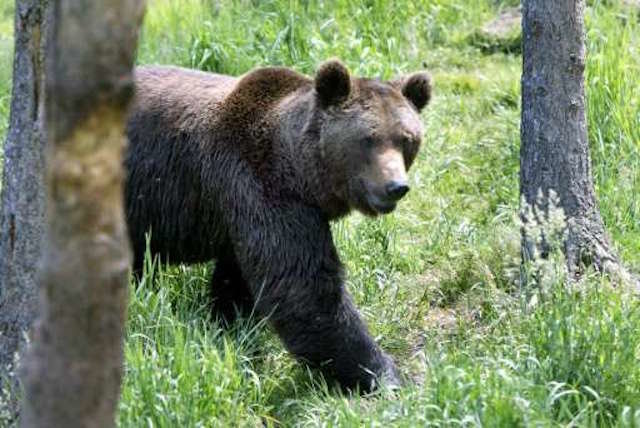
Earlier in January, workers at the Alto Pirineo Natural Park on the Spanish side of the mountain range watched open-mouthed as footage from cameras placed in a rocky area showed a bear and her three cubs rummaging for food when they should have been snug in their cave.
"It's not normal to find a sow with three cubs not hibernating in winter," Santiago Palazon, head of the biodiversity and animal protection division of Catalonia's regional government, told AFP.
"They had been outside of their cave for at least one week."
These brown bears normally kick off their hibernation at the end of November and only emerge at the start of April, although for males that period can be shorter.
But an unusually mild winter in this corner of northeastern Spain, with temperatures between five and six degrees Celsius (41 and 43 degrees Fahrenheit) above average, appears to have changed the habits of at least some of the bears.
"The conditions in the wild were good, there was almost no snow on the ground, there were a lot of acorns from the autumn that they could still eat, and that could have made them leave the cave," said Palazon.
Native Pyrenean brown bears were almost extinct in the 1990s due largely to hunting and the first attempt to re-introduce them was in 1996 when three bears were brought from Slovenia which has a thriving bear population.
Now, there are around 40 living in the mountain range.
This unusual behaviour had already been detected in 2012 in Spain's northern Cantabrian mountains, where another 250 brown bears live, but this is the first time that it affects those in the Pyrenees, said Guillermo Palomero, head of the Brown Bear Foundation.
He told AFP that this was not necessarily detrimental for sows, which lose a lot of energy suckling and can compensate their non-hibernation by eating and filling up on calories.
"But that doesn't mean that climate change is good for them," he said, adding that experts were examining how higher temperatures could affect the availability of bear food such as acorns, wild berries or beechnuts.
"We will know if it benefits them or not in the long term."



Reader Comments
to our Newsletter